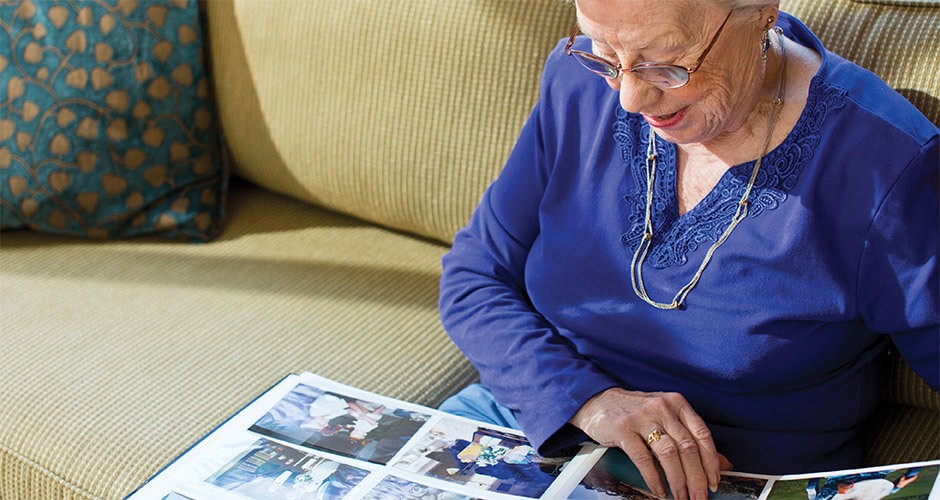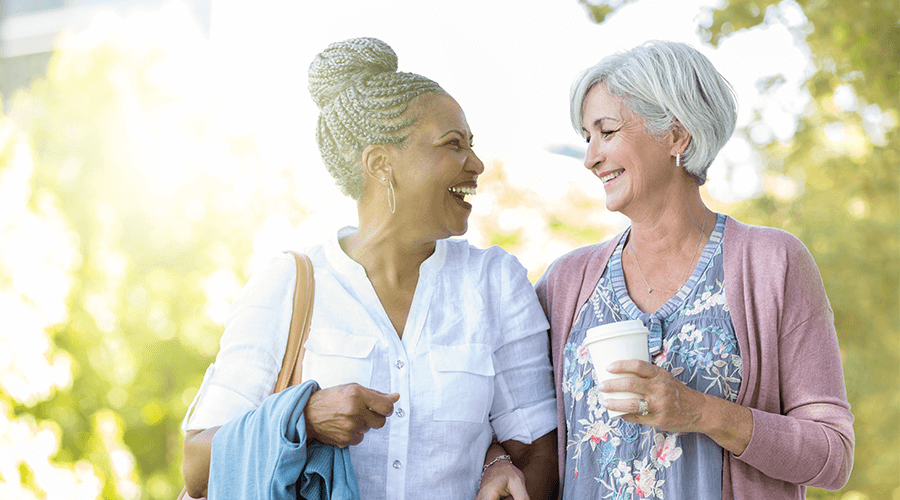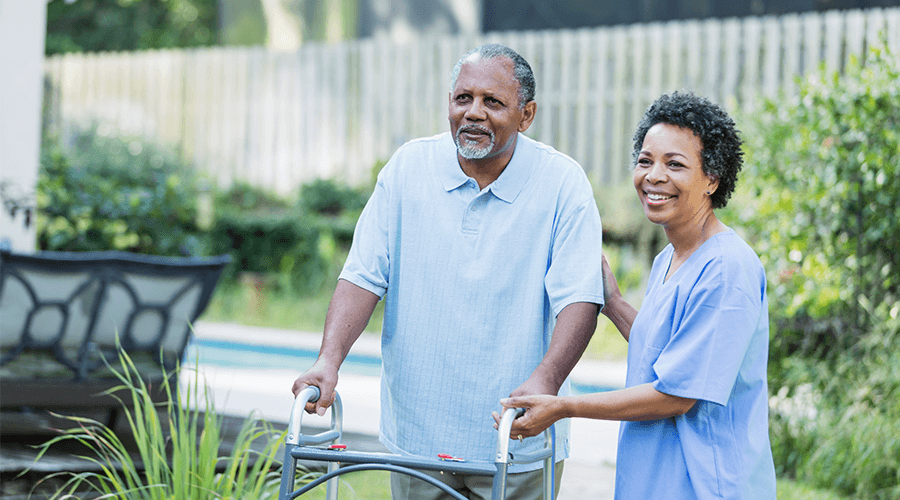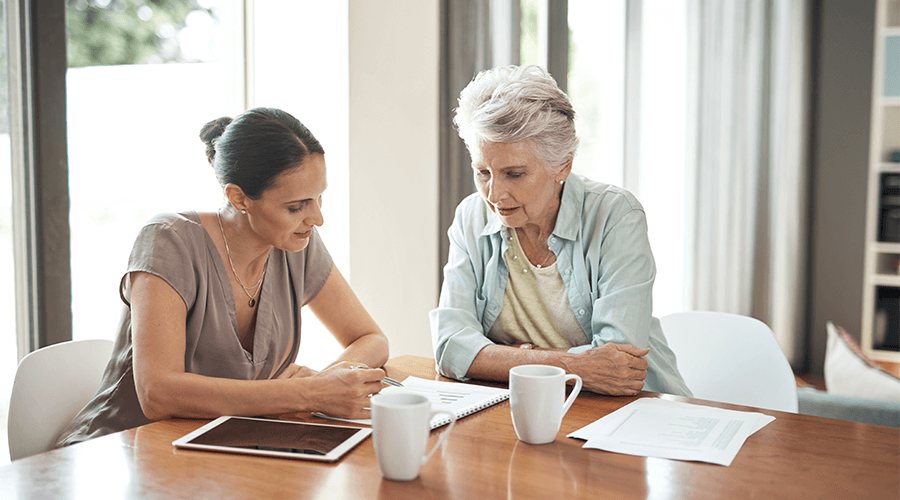Living through the crisis of a pandemic can be hard enough for the average person, let alone someone who has dementia.
For those with memory loss, the COVID-19 pandemic may increase their confusion and behaviors and make it difficult for them to adapt to changes in their environment.
Because of the increased impact on residents who have dementia, Good Samaritan Society staff members have shifted their care practices.
“They’re trying to keep things as normal as possible. They have to do some things differently in order to enhance residents’ well-being while following safety practices,” says Michelle Kutner, a social services consultant for the Good Samaritan Society.
Establishing a comfort zone
Part of establishing normal routines involves the use of consistent caregivers and finding different ways to help residents.
In addition to saying who they are or showing their picture, caregivers have also found that if they stand a safe distance away and briefly take off their masks to show the resident their face, this helps with recognition.
Michelle says meaningful conversations are the goal when caregivers and residents talk. The best conversations happen when residents can talk about subjects they like.
If a resident is questioning something the caregiver is doing based on the pandemic, the caregiver should provide a simple verbal and/or written explanation why they are doing things differently to help support the resident.
During any conversation, the priority is supporting residents no matter what emotion they’re experiencing.
Acknowledging their frustration and how they’re feeling is important." – Michelle Kutner, a social services consultant for the Good Samaritan Society.
Engaging residents in a new way
Activities have been modified so all residents – including those who have dementia – can do them differently. Having them do activities in their rooms makes it easier to maintain social distancing.
“Meaningful programming is important and can enhance the quality of life for all residents in our settings,” says Michelle.
A good way to support residents’ well-being is by giving them opportunities to use intact skills and participate in familiar experiences. Since residents with dementia respond well to props, caregivers often use these when providing activities to make a meaningful connection. Props can include items such as like-life figurines or objects such as a feather duster.
Throughout the Good Samaritan Society, caregivers strive to keep residents engaged and make sure their spiritual, physical, emotional and social needs are met.
A family connection is key
The Society has come up with a variety of ways to keep residents who have dementia in touch with their loved ones – including providing an iPad to each location. With this technology and the assistance of caregivers, residents can communicate with their families.
Video calls where residents can visually see their loved one while conversing are one of the best ways to create more of a connection with a loved one who has dementia.
If allowed, visits with them can be done outside a closed window while on the phone so families can see and talk to their loved one.
Sending letters and photos through the mail or online is also an option.
Whether it’s virtual, over the phone or in a letter, Michelle says family members should remember one thing when connecting with those who have dementia.
“It’s about creating or recreating meaningful moments,” says Michelle.




